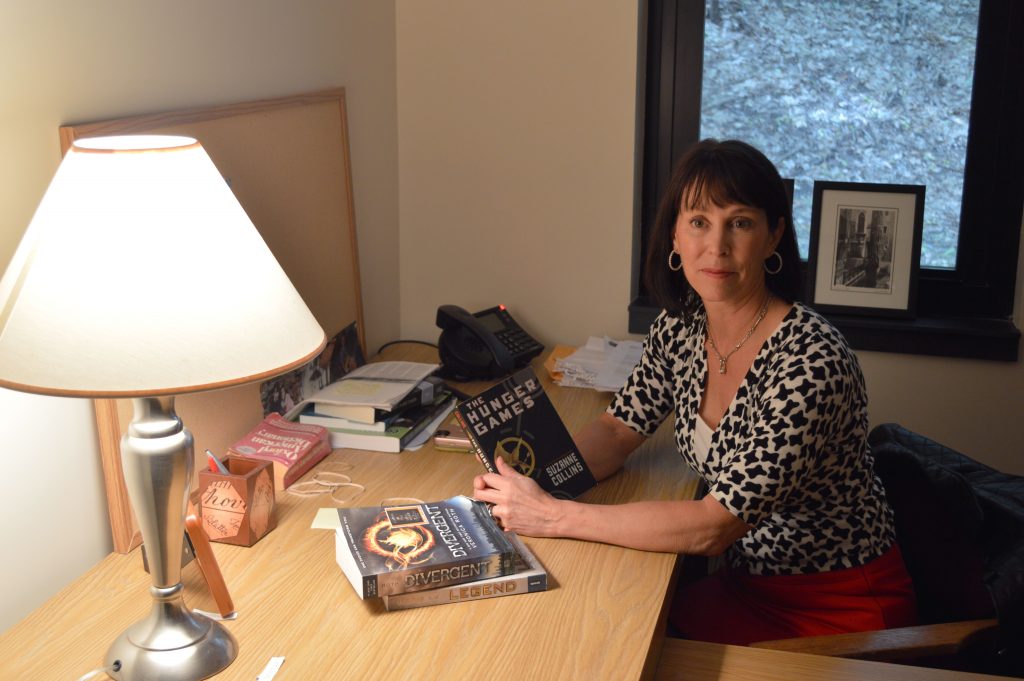
After spending most of her academic career teaching 19th-century British literature, Elizabeth Signorotti is taking a chance with her new dystopian literature class.
“It seems like the ultimate buzzkill; it’s like, I’m to spend the whole semester reading about worlds falling apart and limited potential,” she said. “Spending 15 weeks reading about, you know, the world gone awry — it’s kind of a gamble.”
Signorotti, an adjunct lecturer in the English department, is teaching a course this semester titled ENG 300O: Dystopian Young Adult Fiction, which takes a close look at popular novels and some of their film adaptations. This distinct class aims to break the mold of conventional literature classes by analyzing well-known, modern novels.
Newly developed for this semester, the course emerged through the popularity of the dystopian genre and the expressed interest from former students, Signorotti explained.
“It’s so hot right now and everyone’s talking about it,” she said. “I think it’s a lot more accessible and I think a lot more people want to read it.”
Throughout the course, students examine both older and more modern forms of dystopian literature, such as “Lord of the Flies” (1954), “The Giver” (1993), “The Hunger Games” (2008), “Divergent” (2011) and more. They first read Thomas More’s “Utopia” (1516) as a point of departure to look at the other texts. Using the film adaptations as aids, students consider how this genre has evolved over the years and learn to analyze the crucial meanings behind these texts.
The course has a full class roster of 45 students, and so far, they have responded positively.
“I really like the class,” said Abby Calandra, a sophomore double-majoring in English and theatre. “I find that a lot of the books are really relatable, so I’m really enjoying reading them and taking a new look on what I already read, because I read a lot of them in the past when I was in high school. And I love the professor. She’s really awesome — she’s cool, she’s down to earth, she’s very approachable.”
A crucial factor in this high registration number, Signorotti said, is how well the dystopian worlds mirror the stresses and anxieties that young people face today.
“I think they identify with the idea that one mistake could be the end for you, or the idea of having to wage battle in the course of your day-to-day lives,” she said.
Signorotti explained that it was especially important to teach dystopian literature at the university level because the genre is often overlooked by academia.
“I don’t think [it’s] really being studied anywhere else,” she said. “[In college] there’s a lot of leeway in many instances to spend an entire semester studying the various ways in which we shape dystopias.”
Although the course has only existed for a few weeks, Signorotti says that she already sees a lot of potential in it and the genre’s popularity.
“We’ve become very focused on the [dystopian] elements in our world,” she said. “The idea of ‘If [I] don’t pass the test, you know, what’s going to happen to my future?’ I mean, there’s this sense that it’s kind of an all or nothing.”


